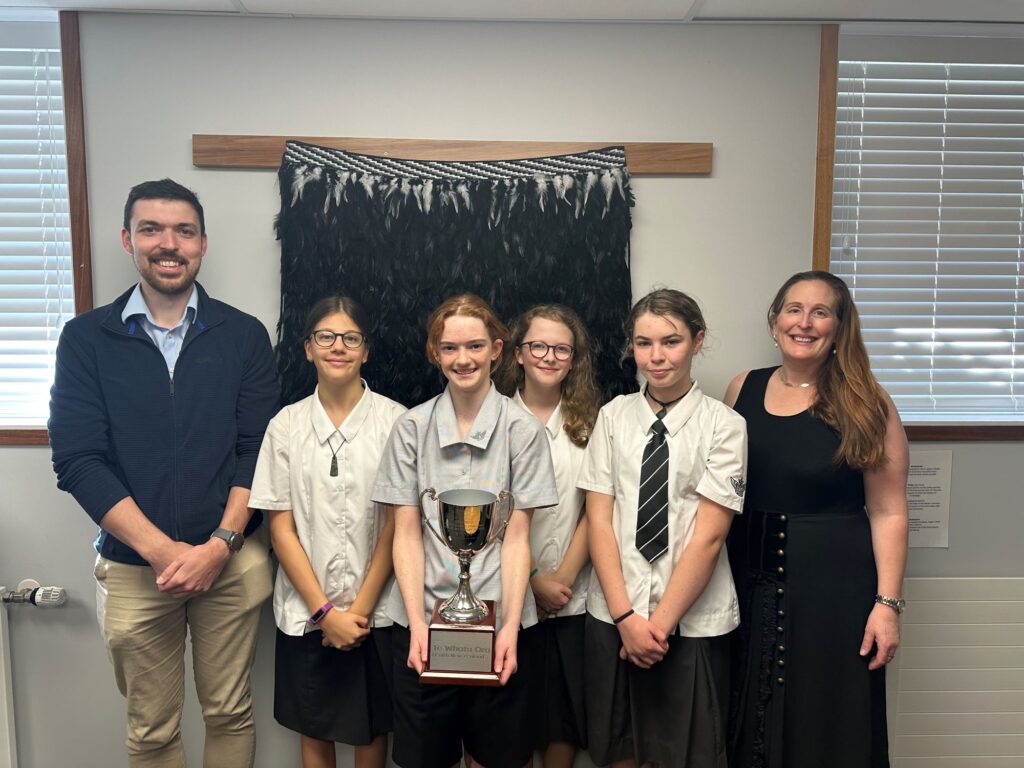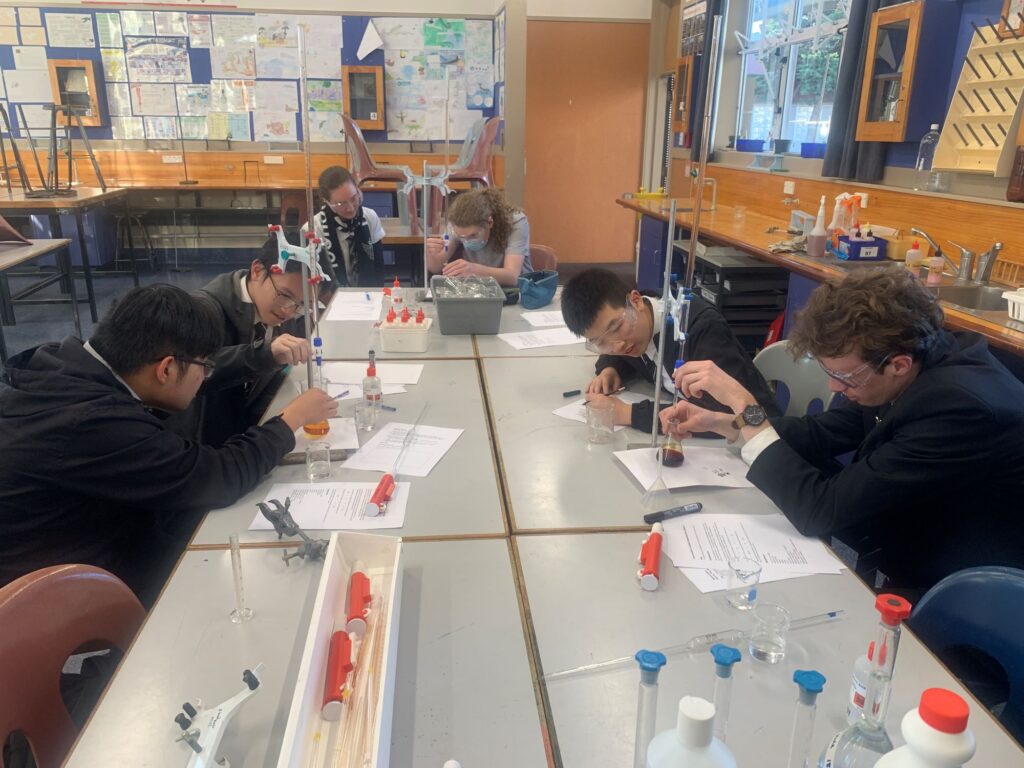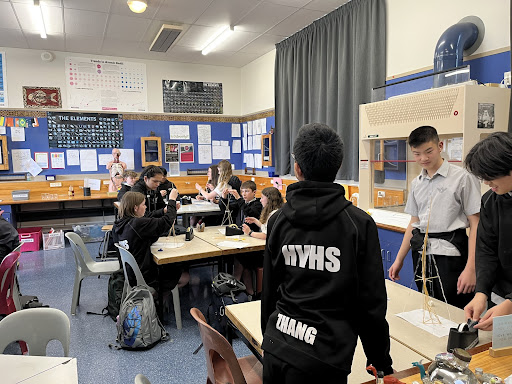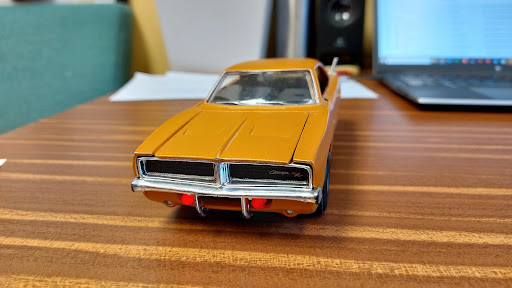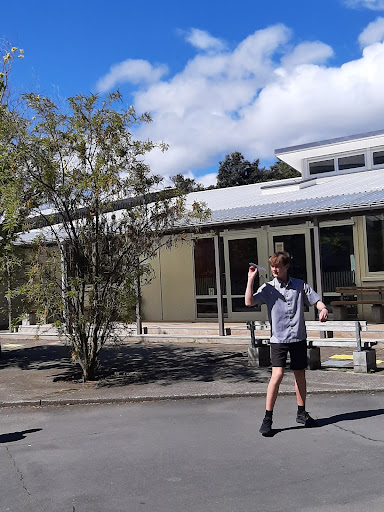Mā te whakaaro nui e hanga te whare; mā te mātauranga e whakaū.
Science is a way of investigating, understanding, and explaining our natural, physical world and the wider universe. It involves generating and testing ideas, gathering evidence – including by making observations, carrying out investigations and modelling, and communicating and debating with others – in order to develop scientific knowledge, understanding, and explanations. Scientific progress comes from logical, systematic work and from creative insight, built on a foundation of respect for evidence. Different cultures and periods of history have contributed to the development of science.
– Ministry of Education, Te Mātaiaho, The New Zealand Curriculum
Subjects Offered in 2024
The Learning Area of Science includes the following subjects in 2024:
- Science in Years 9, 10, & 11
- Science & Sustainability in Year 11
- Biology in Years 12 & 13
- Chemistry in Years 12 & 13
- Physics in Years 12 & 13
- Electronics in Years 12 & 13
- Horticulture in Years 12 & 13
Science is compulsory up to Year 10. Science is recommended in year 11 then becomes optional in years 12 and 13.
Studying Science
Junior students work in specialised science laboratories meeting learning experiences that are grouped into units. The units put new science concepts into contexts familiar to students. Examples of contexts are Te Awa Kairangi where we study the ecosystems and water quality of the Hutt River, and Sustaining life where we explore how our planet allows life to occur, and why we haven’t been able to find life anywhere else in our universe. Students will enjoy experimenting with chemicals, collecting data in investigations and developing the skills to manipulate lab equipment. Students are encouraged to bring laptops or tablets to class as they will be used for class work, use of web based resources, research, creating presentations and more.
In year 11, students can choose to complete either a General science course and/or a Science and Sustainability course.
Science covers key aspects of biology, chemistry and physics and uses these to deepen our understanding of the world. Biology will focus on genetics, ecological relationships and cell structure. Chemistry will focus on atomic structure, properties of solids, organic compounds and acid and base reactions. Physics will focus on energy changes, mechanics, and electrical circuits.
The Science and Sustainability course takes a holistic approach to science and sustainability. There will be a focus on using scientific knowledge and thinking to investigate food, nutrition, materials, ecology, sustainable cities, and biomechanics. Throughout the course there will be many issues explored where controversy and disinformation are common. These may include vaccination, pest control, climate change, health and well-being.
In years 12 and 13, students can select any of the following science disciplines: Biology, Chemistry, Physics, Horticulture and Electronics where they will be taught a range of different content by subject specialist teachers.
For more information, contact Shane Harrison (Head of Science) at shane.harrison@hvhs.school.nz
